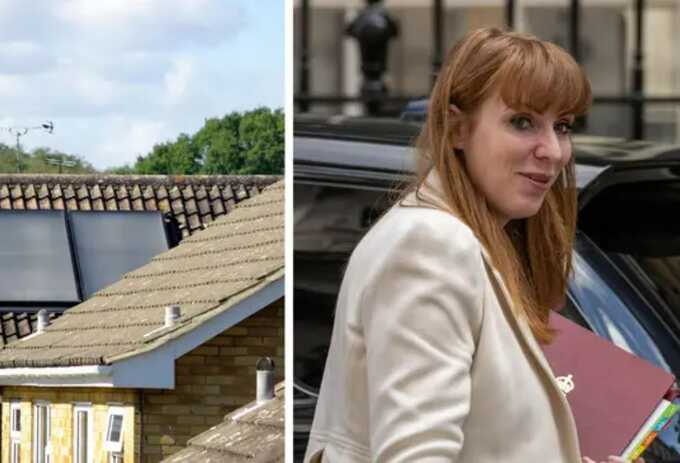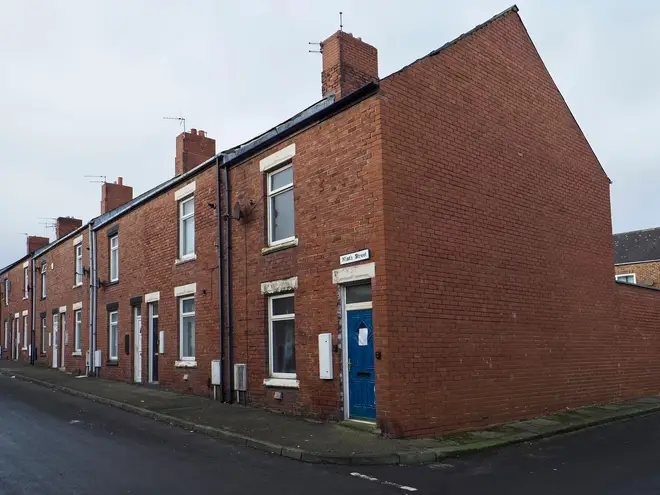Landlords face £6,000 bill to comply with new government energy efficiency targets

Landlords will have to meet a higher standard of energy efficiency across their rental properties by 2030, under plans proposed by the Government.
All private landlords in England and Wales will be required to meet Energy Performance Certificate (EPC) C or above by the end of the decade - an increase from the current the lower EPC E level rating required.
The Government said the proposals could save renters £240 a year on average on their energy bills - however, the change could see landlords slapped with a bill of between £6,100 to £6,800 by 2030.
Labour says the proposal, which is currently out for consultation, could lift up to half a million households out of fuel poverty thanks to the resulting reduction in heating and energy costs.
Under the plans, landlords will have the choice of how to meet energy efficiency standards, with options such as loft insulation, cavity wall insulation and double glazing.
They will also then have further options such as solar panels, batteries and smart meters, or low carbon heating such as heat pumps.
It comes as Awaab’s law, forcing social landlords to fix dangerous damp and mould, is set to be introduced in October.

The legislation is named after two-year-old Awaab Ishak, who died as a direct result of exposure to mould in the social home his family rented in Rochdale in 2020.
The new Government proposals will see a maximum £15,000 cap beyond which landlords will not have to spend to meet the EPC C rating, with potential for a lower £10,000 cap if renters are charged lower rents or homes are in a lower council tax band.
Officials pointed to support for heat pumps from the boiler upgrade scheme and the warm homes: local grant programme which will provide funding for measures including insulation, solar panels and air source heat pumps.
And with 48% of rented properties already meeting the EPC C grade, the Government wants to see the standard introduced across the board, and believes the move will not lead to increased rents for tenants.
Announcing the new consultation on Friday, Deputy Prime Minister and Housing Secretary Angela Rayner said: "For far too long we have seen too many tenants plagued by shoddy and poor conditions in their homes and this government is taking swift action to right the wrongs of the past.
"Through our Plan for Change we are driving up housing standards, improving quality of life, and slashing energy bills for working people and families."
It is estimated that the average cost to landlords of complying with the proposals will be £6,100 to £6,800 by 2030.

Previous proposals requiring landlords to meet EPC C standards for private rented homes by 2028 were axed by then prime minister Rishi Sunak when he watered down a series of green policies in September 2023.
Then the move was welcomed by landlords, but drew criticism that it was locking in tenants to years of higher bills.
Energy Secretary Ed Miliband said: "For years tenants have been abandoned and forgotten as opportunities to deliver warm homes and lower energy bills have been disregarded and ignored."
He said the new changes could save renters £240 a year by raising the efficiency of homes to cut the cost of bills.
"These plans will also make sure that all private landlords are investing in their properties, building on the good work of many to upgrade their homes to Energy Performance Certificate C or higher already," he said.

New energy performance certificates are also planned, but homes that are already rated A-C under the current system will be considered compliant until the expire, the Government said.
Acting shadow energy secretary Andrew Bowie said: "This misguided announcement will do nothing to lower energy bills in this country.
"On top of the warnings that Angela Rayner is nowhere near meeting her house building targets, and her Renters Rights Bill reducing supply and raising rents - Labour are proposing burdening landlords with heavy costs, which will inevitably be passed onto renters, instead of working to deliver cheaper and more secure energy for this country."
From October, landlords will have to investigate and fix dangerous damp and mould within a set period of time and repair all emergency hazards within 24 hours.
The law will then be strengthened over time and from 2027 it will require landlords to fix all dangerous hazards.
Read more similar news:
Comments:
comments powered by Disqus
































